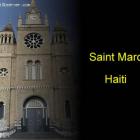ADVERTISEMENT
Constitution Facts - Haiti Observer Blog
Constitution Facts, Haiti Observer Blog. Read the following articles about Constitution Facts
1843 Constitution of Haiti
Charles Riviere-Herard seized power as Haiti's 5th president in 1843, after staging a coup. His reason was the amended 1843 Constitution, passed without his knowledge. Hérard ruled for one year, plagued by two civil uprisings, and failure to repossess the Dominican Republic (DR) as part of Haiti's empire.
During the battle to re-establish Haitian rule over the DR, insurgents were gathering in rural Les Cayes. Known as the Army of the South, they fought to capture Port-au-Prince in a coup attempt. But they did not succeed. In the meantime, another uprising was fomenting in northern Haiti, incited by opposition to Charles Riviere-Herard's government. Confronted with the latest effort to unseat him from office, he tried to maintain control by breaking up Parliament and banning the amended 1843 Constitution. After dissolution of his government, he fled from office and exiled himself to Jamaica where his life ended.
Haiti Constitution of 1807
Title I. Abolishes slavery, grants residents full citizenship rights, protects property, and administers the death penalty for murder.
Title II. Sets up organization of government, appointing Henry Christophe President and Commander-in-Chief of the military. Empowers him to appoint his successor, sign treaties, and declare war.
Title III. Establishes Council of State and its functions under the President. Creates an Office of the Budget, presided over by a Budget Finance Director.
Title IV. Budget Finance Director shall also handle administration of Navy and Interior.
Title V. Creates a Secretary of State responsible for all intra- and inter-departmental correspondence, preparation of official government documents, and co-signatory duties.
Francois Duvalier's Violations of the 1957 Constitution
François Duvalier, Haiti's 40th President, raised in a prosperous family and well-educated, obtained his medical degree from the University of Haiti. He was a compassionate public-health official, who brought relief to Haitians suffering outbreaks of tropical illnesses. This earned him the name Papa Doc. He retained it forever, using it as a tool of manipulation.
After Duvalier returned from exile (due to a coup of a political ally), he ran on a populist platform for the presidency. Supported by the Haitian Army, he attacked mulatto elites, aligning himself with black nationals. He won the election against Déjoie, a mulatto real-estate tycoon.
1801 Constitution of Saint-Domingue, Haiti
The Constitution of Saint-Domingue Haiti was signed in 1801 by Governor-General for Life Toussaint L'Ouverture, the ruler of Hispaniola before Haiti became a republic.
Title I. Refers to the colony of Saint-Domingue, the seat of cities and neighboring islands, subject to French rule. Sets up the divisions of departments, arrondissements, and parishes.
Title II. Abolishes slavery, introduces anti-discrimination rules, and employment rights.
Title III. Establishes Christianity as the official religion of the colony. Forbids men of God from organizing for political reasons.
Title IV. Protects the legal rights of spouses as long as they remain faithful and their children born of their sanctified or civil union.
Our objective is to share with you news and information about Haiti and the people of Haiti. Traditions, habits and the way we were or grew are alive in this site. We highly recommend that you Subscribe to our Newsletter and also share with us some of the things that are memorable and made us unique people.

 Saint Marc, Haiti
Saint Marc, Haiti  Thomonde, Haiti
Thomonde, Haiti  Saint Michel de L 'Atalaye
Saint Michel de L 'Atalaye  Haitian Thanksgiving
Haitian Thanksgiving  Haiti tech Summit
Haiti tech Summit